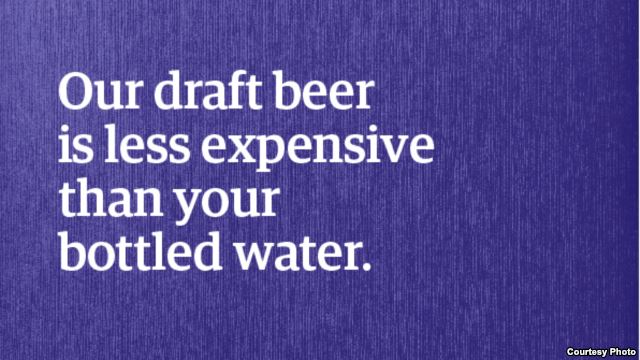こんばんは。
イギリス英語の花柄ITエンジニア PRIDEAUX-ANZAI Ryosuke(PAR)です。
イギリス人と言えばユーモア。
ユーモアと言えばイギリス人。
A BEGINNER’S GUIDE TO UNDERSTANDING BRITISH HUMOUR
(イギリスのユーモアを理解するためのビギナーガイド)
前回の続きです。
WAIT, WERE THEY JOKING?
Combine self-deprecation with a dose of understated sarcasm and you have the key ingredients of British humour. Sarcasm and irony are ingrained in our DNA. They are produced with world-class timing and nearly always with a deadpan delivery that will leave you wondering as to whether it was indeed a joke (or not?)
Sarcasm can be hard to spot in a new language and a new culture, and in Britain the usual clues of hyperbole (exaggeration) and an overemphasis on adjectives are stressed even less, making it harder to pick up.
Luckily, sarcasm is used so often in day-to-day life that you will soon be a natural at detecting it. Be sure to use the tone, context and non-verbal clues such as the proud smile that spreads across the speakers face (Brits struggle to hide their delight at a perfectly timed sarcastic comment) as a guide.
Examples:
“Oh, so you do know how to answer your phone?”
“I absolutely love it when my train is delayed.”
“I really like how loud you play your music.”
Comedians to look out for: Jack Dee, David Mitchell and Stewart Lee
TV shows to check out: The Thick of It, The IT Crowd, The Office
今日も、文章毎に分けてみましょう。
Combine self-deprecation with a dose of understated sarcasm and you have the key ingredients of British humour.
Combine A with B : AをBに結び付ける、AをBと組み合わせる
self-deprecation : 自己卑下
dose : (薬の)一服、1回分(名詞)
understated : 装飾を避けた、地味な(形容詞)
clue : 鍵、ヒント(名詞)
(Combine self-deprecation with a dose of understated sarcasm)
and(そうすれば)
(you have the key ingredients of British humour.)
という文章構成になっています。
Sarcasm and irony are ingrained in our DNA.
sarcasm : 嫌味(名詞)
irony : 皮肉(名詞)
ingrained : 深く染み込んだ(形容詞)
They are produced with world-class timing and nearly always with a deadpan delivery that will leave you wondering as to whether it was indeed a joke (or not?)
deadpan : 無表情な、(冗談・皮肉などを)さりげなく
delivery : 話し方(名詞)
as to : ~に関しては、~については、~に応じて
whether : ~かどうか
ここの’they’は、前の文章の’Sarcasm and irony’を指します。
文章の幹となるのは
They are produced
で、
A(with world-class timing)
and
B(nearly always with a deadpan delivery that will leave you wondering as to whether it was indeed a joke (or not?))
をもって、作り出される。
という構成になります。
They are produced with A and with B
(AとBをもって、作り出される)
という感じです。
更に、Bの中の’nearly always’はB全体を説明する補足で、that以下の文章は’deadpan delivery’を説明する文章です。
Bの構成は、
it was indeed a joke (or not?) かどうか(whether)
について(as to)
will leave you wondering
にさせるような
deadpan delivery
という意味になります。
Sarcasm can be hard to spot in a new language and a new culture, and in Britain the usual clues of hyperbole (exaggeration) and an overemphasis on adjectives are stressed even less, making it harder to pick up.
spot : ~に気付く、~を見分ける(動詞)
hyperbole : 誇張(名詞)
exaggeration : 誇張表現(名詞)
overemphasis : 過度の強調(名詞)
stress : 強調する(動詞)
and以下の主語は
the usual clues of hyperbole (exaggeration) and an overemphasis on adjectives
で、making以下は前の文章を説明する表現となっています。
Luckily, sarcasm is used so often in day-to-day life that you will soon be a natural at detecting it.
luckily : 幸いなことに(副詞)
day-to-day : 日常の
so ~ that構文。学校で勉強しましたね。
あまりに~なので、~
というやつです。
Luckily, sarcasm is used
あまりに(so)
often in day-to-day life
なので、(that)
you will soon be a natural at detecting it.
という構成になっています。
Be sure to use the tone, context and non-verbal clues such as the proud smile that spreads across the speakers face (Brits struggle to hide their delight at a perfectly timed sarcastic comment) as a guide.
tone : トーン、口調(名詞)
context : 文脈、背景(名詞)
non-verbal : 言葉によらない、非言語的な
such as : ~のような
spread : ばらまく(動詞)
struggle : 悪戦苦闘する(動詞)
delight : 喜び(名詞)
timed : タイミングが~の(形容詞)
文章の構成としては
Be sure to use
という命令文で、
the tone, context and non-verbal clues
を
Be sure to use
しなさい、と言っています。
such as以降の文章は、
non-verbal clues
を説明する文章となります。
更にその中のthat以下の文章は、the proud smileを説明する文章となります。
全体を通して訳すと、
ちょっと待って、それってジョークだったの?
(自己卑下と少しの地味な嫌味を合わせれば、あなたはもうイギリスのユーモアの重要な材料を手に入れたも同様だ。)
(嫌味と皮肉はわれわれ(イギリス人)のDNAにしっかりと組み込まれている。)
(それ(嫌味や皮肉)は、ワールドクラスのタイミングで、かつ、ほとんどいつもさりげなく、本当にジョークだったのかと不思議になってしまう話し方で生み出される。)
(新しい文化・新しい言語(を持つ人々)において、嫌味に気づくのは難しいかもしれない。そして、イギリスにおいて、誇張や形容詞を使用して過度に強調をするコツは「強調しないこと」なので、拾い上げるのがより難しくなっている。)
(幸いにも、嫌味は日常生活で非常に頻繁に使用されているので、すぐに自然とわかるようになるだろう。声のトーンや状況、(嫌味の)ガイドとして話者にまき散らす誇らしげな笑みなどの非言語的なヒント(イギリス人は、嫌味を完璧なタイミングで言うことができた時の喜びを隠さずにはいられないのだ)を使うことだ。)
例 :
おっと、じゃああなたは電話に出る方法を知ってたの?
電車が遅れるのが大好きなんだ。
※電車が遅れた時に言います
あなたが大きな音で聴いている音楽がとっても好きなんだ。
※隣の人が大音量で音楽を聴いているときに言います
チェックするべきコメディアン : Jack Dee, David Mitchell, Stewart Lee
チェックするべきテレビ番組 : The Thick of It, The IT Crowd, The Office
The IT Crowd
と
The Office
は自分もDVDを購入しましたが、まだ面白さがわかりません・・・。まだまだ勉強ですね。
妻も密かに嫌味を言っているのかもしれません。
まだまだ自分が気付いていない嫌味がありそうです^^;
social media announcement
Facebook内でのコミュニティ「英国式!恋する英会話」
http://www.nicriantejapon.co.uk/jp/application_bre.html
※イギリス的な表現がたっぷり!ブログやSNSでは語れない内容も満載のメールマガジン「Sarcasticな妻とバカ正直な夫の英国式!恋する英会話」のみのご登録はこちらから
http://www.nicriantejapon.co.uk/jp/newslettersubscribe.html
Instagram始めました!
usename : par1978
Please follow me! 😉
